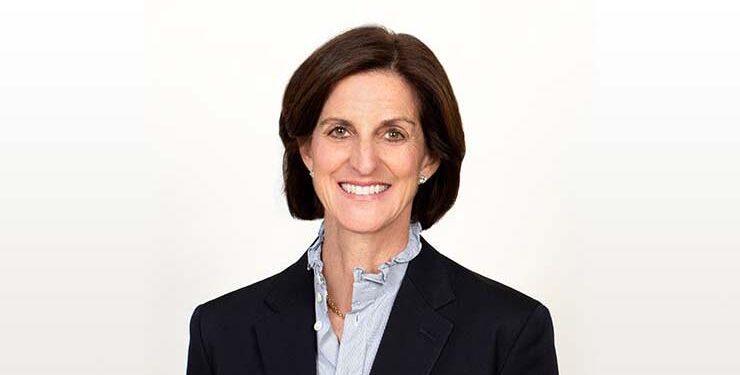Going for the Gold

Emily Glasser is a true leader in the world of sports for disabled athletes. As the President and CEO of Achilles International, she is dedicating her career to creating opportunities for individuals with disabilities to participate in sports and physical activities, and to promoting inclusion and accessibility in all aspects of society.
Achilles International is a non-profit organization founded in 1983 by Dick Traum, who in 1976 was the first amputee to complete a 26.2-mile marathon. The organization’s mission is to empower people with disabilities to participate in mainstream athletics and achieve personal goals.
Under Glasser’s leadership, Achilles International is focused on creating a supportive community that encourages people with disabilities to participate in athletic activities, regardless of their physical abilities. The organization’s programs are designed to help individuals with disabilities increase their self-esteem and sense of accomplishment through participation in physical activities such as running, walking, and cycling.
One of the newer core programs of Achilles International that Glasser regularly champions is the Achilles Freedom Team. This program provides support and training to wounded veterans and individuals with disabilities who want to participate in mainstream athletic events, such as marathons and triathlons. The Achilles Freedom Team has helped many veterans and individuals with disabilities achieve personal goals and has inspired many others to get involved in athletics.
In addition to the Achilles Freedom Team, Glasser and her team offer several other programs and services to support individuals with disabilities who want to participate in athletic activities.
These include:
- Achilles Kids: A program that provides opportunities for children with disabilities to participate in running and walking events, and encourages them to lead healthy, active lives.
- Achilles Para-Triathlon Team: A program that provides support and training to individuals with disabilities who want to participate in triathlons.
- Achilles Chapter Program: A network of local chapters that provide support and training to individuals with disabilities in communities around the world.
When we sat down on The Caring Economy in the middle of the Covid pandemic, Glasser demonstrated how she and her team have had a significant impact on the lives of many people with disabilities. Since joining Achilles as Interim Executive Director in August 2019 and later being named President and CEO in November 2019, Glasser has brought her skills in managing strategic partnerships and her passion for inclusion and accessibility to the organization. She has worked tirelessly to expand Achilles’ reach and impact, and to promote the importance of adaptive sports and physical activity for individuals with disabilities.
Glasser’s leadership has been particularly crucial during the COVID-19 pandemic, as Achilles has had to adapt to the challenges of social distancing and remote work. Under her direction, the organization has launched new virtual programs and events, such as the Virtual Hope and Possibility 5K, which brought together athletes from around the world to participate in a virtual race and celebrate their achievements.
In addition to her work with Achilles, Glasser is an avid runner herself and believes strongly in the power of sport to transform lives. She sees athletics to build community, boost self-confidence, and foster a sense of achievement and purpose, particularly for individuals with disabilities who may face additional barriers and challenges in their daily lives.
Glasser brought with her over a decade of experience managing strategic partnerships for top-tier cultural institutions and innovative mission-driven startups. Her skills have been developed at large institutions such as Deutsche Bank and MoMA as well as the startup, Goalsetter. Through her work with Achilles, Glasser advances understanding of the importance of inclusion and accessibility in all elements of society and culture.
The world of sports for disabled athletes is a complex and diverse one, with both triumphs and challenges. On the one hand, the rise of adaptive sports and the increased visibility of disabled athletes in mainstream media has helped to break down barriers and promote greater acceptance and understanding of disability. In recent years, athletes with disabilities have competed in the Paralympic Games, the Invictus Games, and other international competitions, showcasing their skills and abilities on a global stage. Glasser and Achilles are smack in the middle of this positive and exciting movement.
She will be the first to admit that there are still significant disparities and inequalities in access to sports and physical activity for individuals with disabilities, particularly in certain geographic regions and socioeconomic groups. According to a 2020 report from the Centers for Disease Control and Prevention (CDC), only 26% of adults with disabilities in the United States engage in any aerobic physical activity, compared to 50% of adults without disabilities. In addition, the report found that adults with disabilities were more likely to report barriers to physical activity, such as lack of transportation, lack of accessibility, and lack of social support.
These disparities are even more pronounced in low-income and rural areas, where access to adaptive sports programs and facilities may be limited or non-existent. According to a 2018 report from the Ruderman Family Foundation, only 34% of American counties have sports programs for people with disabilities, and those programs are more likely to be in urban areas and to serve individuals with higher incomes.
Despite these challenges, organizations like Achilles International and leaders likeEmily Glasser are working hard to promote greater inclusion and accessibility in the world of sports for disabled athletes. Through their efforts, more and more individuals with disabilities can experience the benefits of physical activity and sports, including improved health, increased social connections, and greater self-esteem and confidence.
As with all guests on The Caring Economy, Emily Glasser exemplifies how leaders with purpose-driven lives and careers are shaping our contemporary lives for the better.
